Today’s Contemplation: Collapse Cometh CXCVIII–Beyond Peak Oil: Will Our Cities Collapse?
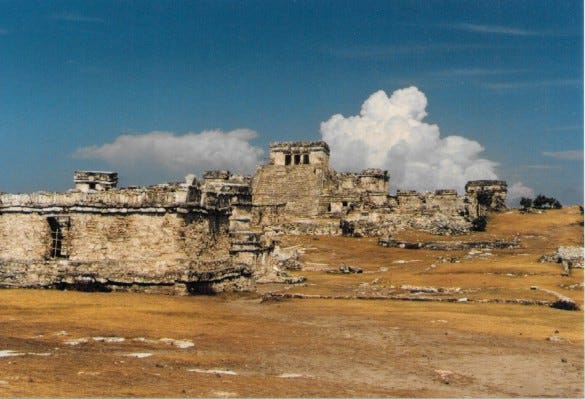
For long-time readers of mine, you will know that I have emphasised repeatedly the importance of energy to human existence and its complex societies. It is the net surplus energy that we have been able to leverage that allows us to continue growing our material throughputs and keep alive our perception of ‘progress’–particularly via our various technological ‘innovations’–and continue to expand (seemingly without limits) our modern complex societies, especially their economies1.
Over the past two centuries in particular, it is the extraction and refinement of relatively easy-to-access and cheap-to-extract, energy-dense petroleum–what some refer to as our ‘master resource’–that has well and truly led to an explosion of trends that began when we first started gathering in large, complex settlements about 10,000-12,000 years ago.
Further, there’s a very good argument to be made that this extraction and use of hydrocarbons is one of the prime causes of a huge leap in our ecological overshoot predicament with its influence upon our various technologies–especially with regard to food production (that has helped to support exponential population growth), resource extraction, and industrialisation.
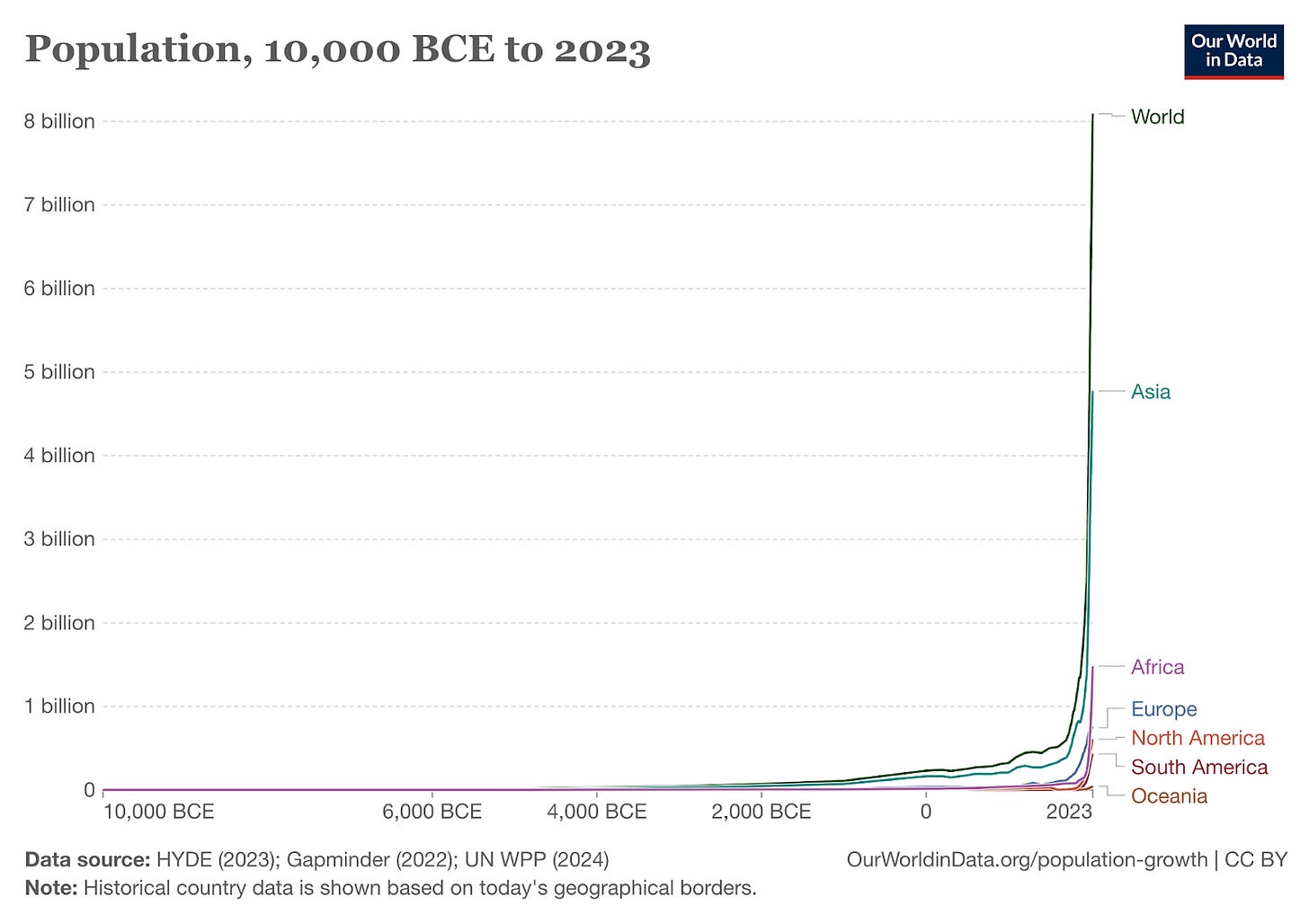
On the flipside, however, our use of petroleum-derived energy also drives a variety of negative impacts upon the planet and its ecosystems–something ‘growth’ advocates often ignore and/or rationalise away. (Here I would argue that this ‘purposeful’ overlooking of detrimental consequences is primarily to avoid the anxiety-provoking thoughts that arise when one sees these repercussions and recognises their potential for significant and possibly irreversible harm–better to deny these and go along with the majority that wish for a happy ending to this latest experiment in large, complex societies.)
The realisation that hydrocarbons are a finite resource and have seen the easiest-to-access and least-costly-to-procure reserves already extracted has led a number of people to contemplate a future without this fundamental energy resource2. And as with most things, the prognostications about an unknowable future span a wide spectrum of ideas from a return to a stone-age way of life that is ‘short and brutish’3 to a technological-based utopia in sync with the planet’s ecosystems and the limits that exist on a finite planet.

The issues that get ‘debated’ within the ‘Peak Oil-aware community’ are varied and not unlike those that emerge in any complex subject area. The following are only a handful of the subtopics that arise when discussions occur regarding this significantly important resource and our future, and are by no means complete and somewhat overlapping: net surplus energy; energy-return-on-energy-invested (EROEI); diminishing returns; peak timing; conventional vs. unconventional–i.e., types of oil; socioeconomics; sociopolitics; supply vs. demand; ecological impacts; scale required of resources/new technologies to ‘replace’ hydrocarbons’; and biogeophysical limits to continued growth.
I pivoted towards doing archaeological research commentary/summaries in the past year or so to explore what the numerous pre/historical experiments in complex societies tell us about societal ‘collapse’, but came across the article summarised below just as a somewhat contentious debate began to arise within the Peak Oil community regarding the timing of Peak Oil, and the potential reserves that exist and can be extracted by us in our quest to continue growing and supporting our complex, global-industrial societies.
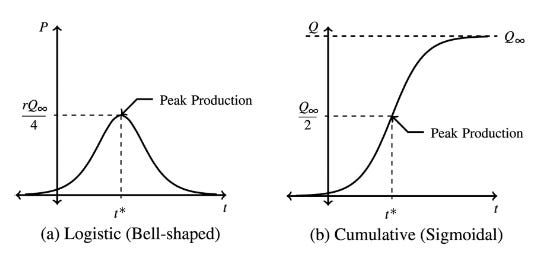
So, I thought it would be interesting to also include summaries of some published articles on the topic of Peak Oil. Below is my first by Dr. Peter Newman that appeared in the Journal of Urban Technology (2007).
The focus of this paper is basically that ‘the right technology can solve the consequences of Peak Oil’. This conclusion is not surprising given the academic focus of the author and the audience that the journal publishes for–its focus is primarily upon sustaining economic growth via ‘smart’ planning and technology.
While there are suggestions made by the author that I fully agree with (such as advocating for localism), there are others that I do not (such as pushing for mass-produced, industrial technologies to counter oil vulnerability). I do not believe we should be pursuing these industrial-based products because there has been increasing evidence that the production of these devices are helping to push greater hydrocarbon demand/use and contributing to the increased broaching of important planetary boundaries as material throughputs grow accordingly. The believers in such technologies to ‘solve’ our various predicaments, however, refuse to acknowledge or rationalise away such evidence; arguing for the most part that there is no other option–mostly ignoring the perspective of those who advocate for a low-/no-tech future.
The question posed in the article title, as to whether cities will ‘collapse’ post-Peak Oil, is in my mind quite clear: they will. All of humanity’s previous experiments in complex societies have ended more or less the same way: a significant simplification (i.e., ‘collapse’). I see little reason or evidence that our globalised, industrialised complex societies will be any different and capable of staving off a return to a far less complex way of living. In fact, I would argue (and have done so repeatedly) that our ‘decline’ may be far more precipitous than in the past given the degree to which we have expanded and become, for the most part, very dependent upon a finite resource that has ‘allowed’ most of our species to lose the skills and knowledge to survive without it.
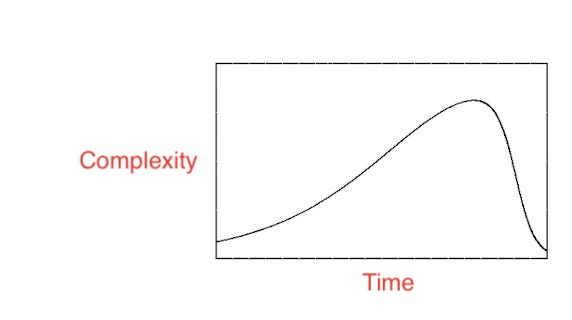
In fact, it may be that our complex societies are already in the process of ‘collapsing’ but this has been well hidden via narrative management and massive credit-/debt-expansion. Regardless, it is the realisation of this ‘dependency’ that has prompted a concern for some regarding our societal vulnerability to a waning of our master resource and a call for planning in response. The plans to confront oil vulnerability that are highlighted in the summarised article appear to be focussed upon sustaining what is increasingly looking to be unsustainable, being quite blind to a number of issues.
I sense a significant blindness in this article to some specific impacts of declining hydrocarbon availability that cannot be met–or, at least, not well met due to issues of scale–via ‘renewables’ or other innovative technology, but also to the ecological systems destruction wrought by our materials-intensive industries. Instead, we are exposed to an argument that more mass-produced, industrial products are the ‘solution’ to resource decline rather than a reconsideration of the ‘industrial technology as solution’ mythology.
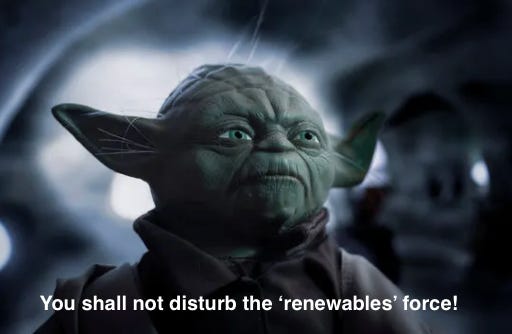
Despite the rising evidence that these technological ‘solutions’ are anything but a panacea and actually exacerbating our predicaments, it is my feeling that they will continue to be pursued for a variety of reasons–not least of which are the profiteering motives that are associated with them and the general acceptance by the masses of the marketing narrative (i.e., greenwashing) that surrounds them.
My shorter summary notes of the article can be found below the following post and follow-up comment from a fellow ‘Peak Oiler’ as it is apropos to the above Contemplation. It is from Schuyler Hupp whose insightful commentary within the Peak Oil Facebook group we are both members of I have shared previously. I thank him for giving me permission to do so once again (with some very minor edits):
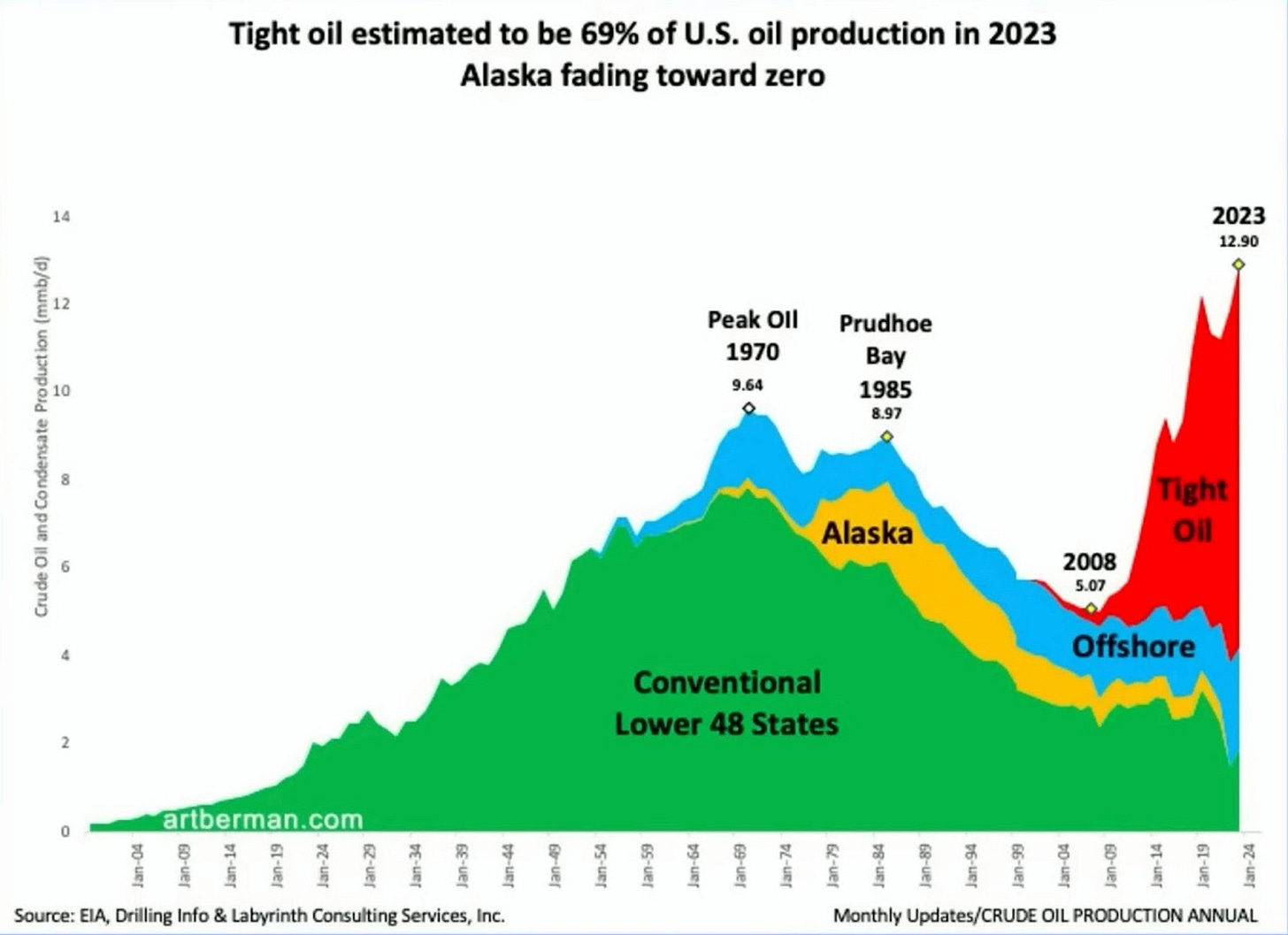
Energy analysts say that the life cycle of aggregate domestic tight oil production will likely be much shorter than that of conventional oil, which peaked in 1970… So if the peak in aggregate domestic production occurs within the next few decades as some predict, then it would raise a bunch of pretty obvious questions:
1) When will tight oil actually peak?
2) As tight oil goes into terminal decline, what alternative energy resources and technology paradigms will replace oil?
3) What will be the net energy return of those alternatives to oil?
4) Does anyone actually know how to manufacture and maintain those replacements without cheap and abundant fossil hydrocarbons?
5) How long might it take to rebuild the infrastructure of western civilization to accommodate whatever new energy paradigm happens to emerge?
6) If net energy and surplus energy are lower under the new paradigm, with lower economic output and less to go around as a result, how well will societies manage the paradigm shift?
7) If indeed a broader decline scenario ensues, how long might it take before a new social and economic equilibrium is to be reached?
8) How much of a risk is it to assume that technological developments will necessarily materialize, so as to make up for the loss of our most essential resource, the one on which our current civilization is largely based?
Of course oil isn’t the whole energy picture, and although energy has primacy when it comes to economic prosperity, there are other factors to consider such as the broader natural resource base and the health of ecological systems… There’s much food for thought.
PS
I forgot to mention… that chart is for domestic, U.S. production, though it’s implied by “Lower 48 States. There are a number of prominent voices predicting a peak in our tight oil production within the decade. The exact date for global aggregate oil production won’t be known until it’s further behind us, but current data suggests that we may have passed that point as far back as 10 years ago. When tight oil goes into decline it will be a real life lesson in biophysical economics that nobody signed up for; people will have no choice but to adapt.
So far as climate…the range of possibilities is broad, at least from what I’ve seen. When it comes to climate models, when you get to 100 years out, at least the dozen or so I’ve seen… the average surface temperature predictions vary by as much as 400%. It certainly could be that it’s game over for humans and a lot of other species… or it could be that it becomes an evolutionary bottleneck, subsistence to follow… or it could be that things suck, and maybe civilization crumbles, but things somehow continue at a much smaller scale and under a very different paradigm.
Even in the best scenario, I don’t think it would involve 8 billion people living sustainably, or anything close to it. The main takeaway from that oil production data is that economic decline in “developed” nations is at the doorstep. So for a generation or so, it will be a question of how people will adapt physically, psychologically, and socially… Mainly, how people resolve claims on limited resources.
Whatever happens over the longer term, climate wise, is something that will just happen when it happens and to the degree that it happens, regardless of the reality of peaking fossil hydrocarbons, though that certainly won’t hurt when it comes to the climate system. Given the shortcomings of human nature, cognitive and otherwise, there’s no reason to expect preemptive actions toward preventing climate change, certainly not at a broad scale… but people are still going to have to deal with the shorter term challenges with regard to resource limits and economic effects.
Summary Notes
Beyond Peak Oil: Will Our Cities Collapse?
Peter Newman
Journal of Urban Technology 14:2 (2007), pp. 15-30
Acknowledging the inevitable decline in the production of oil fields (and providing a brief introduction regarding the history of this realisation) and arguing that the exact date of Peak Oil is not as relevant as the recognition of it, human societies need to plan for this eventuality as time is running out to prepare adequately. There are four possible scenarios that need to be considered for this planning, especially for urban centres in advanced economies.
- Collapse–given pre/historical examples, this is a distinct possibility–especially for those cities that require massive amounts of oil to support their complexities (i.e., those in advanced economies);
- Ruralised Cities–a dispersal of urbanites out of the city into the countryside to establish permaculture villages and suburban agriculture is what some envision but is unlikely without a significant population decline as well as the adoption of far more sustainable lifestyles;
- Divided Cities–the creation of ‘electrified cores’ for the wealthy few while the remainder of the urban population is on the periphery fighting for survival;
- Resilient, Sustainable, Solar City–this is what we should be striving for, an electrified city for all residents.
Arguing that the threat of Peak Oil needs to be taken seriously, the author suggests that the United Nations must take the lead in setting goals for weaning economies off of oil with cities/states creating strategies to accomplish this. Some have begun to explore options, such as the prospects of a Hydrogen Economy.
Cities must plan for significantly reduced car use since they are the factor that most impacts urban vulnerability to oil decline. Public transport must be prioritised (e.g., electric rail lines and buses) as well as mixed land use and denser populations within urban cores and rural lands left for food production.
The impacts from declining oil supplies on agriculture will be significant and we need to halt the expansion of suburban residences onto arable lands. Establishing ‘Horticultural Precincts’ beside urban centres is recommended. Food production needs to become localised and surpluses pursued for trade purposes with nearby communities.
Localism needs to be pushed and innovation in it funded, especially of urban technologies.
A variety of regulations subsidise oil consumption and it is likely that regulations need to be developed to help reduce the use of internal combustion engine vehicles and increase that of hybrid transport. Massive investment in wind farms should occur. As there seems to be no alternatives to hydrocarbons for aviation, unnecessary travel should be reduced via increased pricing.
Advanced economies have virtually no plans for handling oil vulnerability. We need to adapt by using less and shifting our technology.
The more detailed summary notes can be found here.
What is going to be my standard WARNING/ADVICE going forward and that I have reiterated in various ways before this:
“Only time will tell how this all unfolds but there’s nothing wrong with preparing for the worst by ‘collapsing now to avoid the rush’ and pursuing self-sufficiency. By this I mean removing as many dependencies on the Matrix as is possible and making do, locally. And if one can do this without negative impacts upon our fragile ecosystems or do so while creating more resilient ecosystems, all the better.
Building community (maybe even just household) resilience to as high a level as possible seems prudent given the uncertainties of an unpredictable future. There’s no guarantee it will ensure ‘recovery’ after a significant societal stressor/shock but it should increase the probability of it and that, perhaps, is all we can ‘hope’ for from its pursuit.
Some recent and related articles of interest:
What Will Energy Dominance Be Used For? – by Arthur Berman
America’s War On Coal Power-Plants Is Over | ZeroHedge
The Double Bind of Collapse | how to save the world
Ecological Collapse Supersedes Financial Collapse
We Are the Stewards of Our Future – by Nate Hagens
On Human (Over)Population – by Andrea P
Shell’s Flawed Report: The 2025 Energy Security Scenarios
Supercharging the Predicaments We Face
The Renewable Houdini Act – PenguinEmpireReports
Nuclear Fusion Is Just More Bullshit
Solar Panels for Collapse, Are They Worth It? Here’s an Honest Answer.
Overshoot Deficit Disorder – George Tsakraklides
Averting Collapse Is No Longer Profitable
The world isn’t close to breaking free from coal — in some countries, demand for it is surging
Dr William Rees Our obsolescent brains The climate, economics and overshoot
Peak Oil. Food. Fascism. Collapse.
The Wider Boundary of Symptom Predicaments.
If you have arrived here and get something out of my writing, please consider ordering the trilogy of my ‘fictional’ novel series, Olduvai (PDF files; only $9.99 Canadian), via my website or the link below — the ‘profits’ of which help me to keep my internet presence alive and first book available in print (and is available via various online retailers).
Attempting a new payment system as I am contemplating shutting down my site in the future (given the ever-increasing costs to keep it running).
If you are interested in purchasing any of the 3 books individually or the trilogy, please try the link below indicating which book(s) you are purchasing.
Costs (Canadian dollars):
Book 1: $2.99
Book 2: $3.89
Book 3: $3.89
Trilogy: $9.99
Feel free to throw in a ‘tip’ on top of the base cost if you wish; perhaps by paying in U.S. dollars instead of Canadian. Every few cents/dollars helps…
https://paypal.me/olduvaitrilogy?country.x=CA&locale.x=en_US
If you do not hear from me within 48 hours or you are having trouble with the system, please email me: olduvaitrilogy@gmail.com.
You can also find a variety of resources, particularly my summary notes for a handful of texts, especially William Catton’s Overshoot and Joseph Tainter’s Collapse of Complex Societies: see here.
AND
Released September 30, 2024
It Bears Repeating: Best Of…Volume 2
A compilation of writers focused on the nexus of limits to growth, energy, and ecological overshoot.
With a Foreword by Erik Michaels and Afterword by Dr. Guy McPherson, authors include: Dr. Peter A Victor, George Tsakraklides, Charles Hugh Smith, Dr. Tony Povilitis, Jordan Perry, Matt Orsagh, Justin McAffee, Jack Lowe, The Honest Sorcerer, Fast Eddy, Will Falk, Dr. Ugo Bardi, and Steve Bull.
The document is not a guided narrative towards a singular or overarching message; except, perhaps, that we are in a predicament of our own making with a far more chaotic future ahead of us than most imagine–and most certainly than what mainstream media/politics would have us believe.
Click here to access the document as a PDF file, free to download.
Although much of the expansion of the past handful of decades can be greatly attributed to a gargantuan increase in debt-/credit-based currencies; including the growth of energy resources.
Note, however, that some still refuse to accept such finiteness and/or rationalise it away with assertions that a ‘free’ market will adjust to such biogeophysical realities introducing alternatives or humanity will simply colonise other planets and mine passing asteroids for our resource needs once we’ve exhausted our planet’s supplies.
I would remind readers here that this phrase is often used to describe life before ‘modernity’ and its various technologies but this is not what Thomas Hobbes was referring to when he used it. Hobbes was advocating for strong, central authority as a result of people living in a constant state of fear, lacking the necessities of life, and having to struggle to survive prior to its existence.
